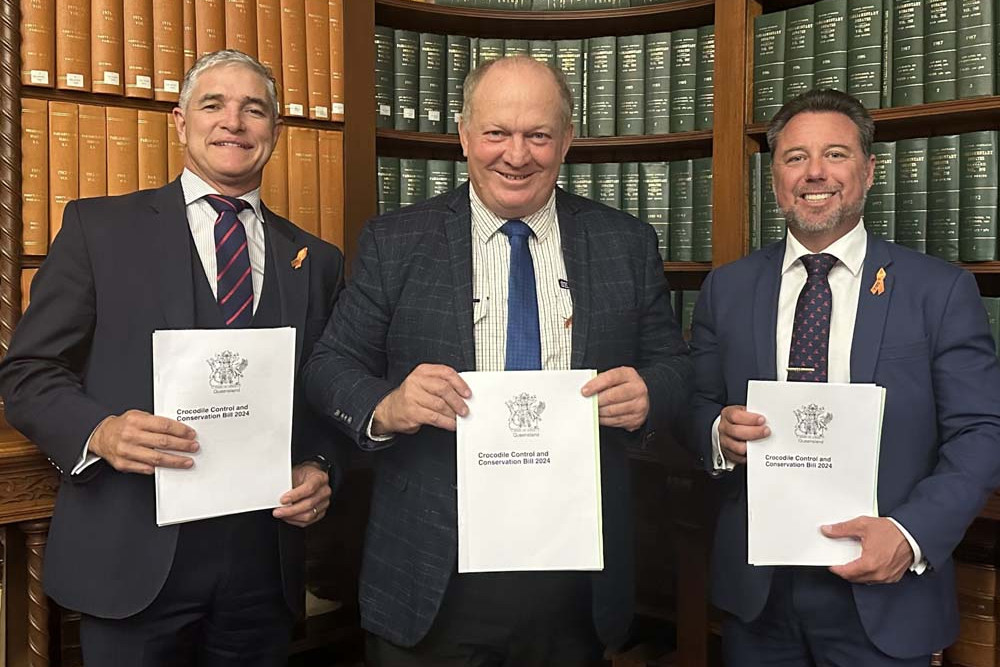General News
29 May, 2024
New bill aimed at keeping crocs at bay
A BILL that is designed to address the escalating human-crocodile conflict in North Queensland has been introduced into Parliament by Member for Hill Shane Knuth.

The Katter’s Australian Party’s Crocodile Control and Conservation Bill 2024 which places a premium on human life by implementing aggressive measures to mitigate the risks posed by the increasing crocodile population.
The Bill mandates zero tolerance of any crocodile identified in populated waterways, either through relocation to authorised farms and sanctuaries or, if necessary, by killing.
It also seeks to create a Queensland Crocodile Authority (QCA) which would be based in Cairns and be responsible for all aspects of crocodile management.
Private landholders who have a waterway through their property would also be able to contact QCA for immediate removal of crocodiles on their property.
Mr Knuth said the Bill was about restoring safety in areas where residents and tourists once freely engaged in water activities but were now threatened by crocodile presence.
“This Bill is about prioritising human life in waterways that are heavily used by North Queenslanders for recreational, leisure and commercial activities,” he said.
“It is ridiculous that current practices dictate crocodiles will be observed for any dangerous behaviour before removal.
“Any crocodile in any populated waterway poses a direct danger to human life and should be removed immediately.”
Mr Knuth highlighted data from the Queensland Department of Environment, Science and Innovation which underscored the urgency of the issue.
“In 2023, there were 1,216 reported sightings of crocodiles, marking a significant increase from 176 sightings in 2010,” he said.
Mr Knuth said the unchecked rise in crocodile numbers has profoundly disrupted the lives of North Queenslanders and business.
“I am saddened that our tourism industry is trying to promote our beautiful beaches and waterways, but when tourists arrive, all they see are croc signs and beach closures, which basically warns that if you swim, you are potentially going to be ripped to pieces,” he said.
Mr Knuth said a key feature of the Crocodile Control and Conservation Bill 2024 was the empowerment of Indigenous landholders.
The Bill recognises their unique connection to and understanding of the land and grants them the authority and opportunity to manage crocodiles on their land how they see fit.
This includes options for relocating, maintaining, or killing crocodiles, engaging in the lucrative practice of egg harvesting and allowing a quota of “high-end” clients to pay to harvest saltwater crocodiles.
“This Bill provides real opportunities for local Aboriginal and Torres Strait Islander communities, by providing jobs and economic development,” Mr Knuth said.
“With almost 80% of Queensland's crocodile population located in North Queensland, it makes sense to decentralise the management of crocodiles from Brisbane to the Far North.”.


